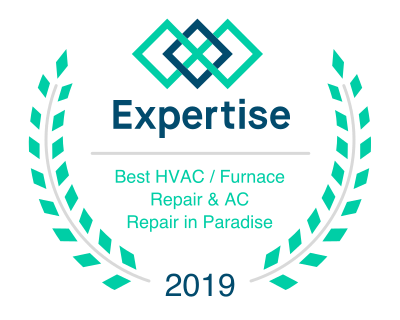Deciding whether to upgrade your air conditioning system, also known as an AC unit, or HVAC unit isn’t just a significant financial decision due to potential labor costs and energy bill savings; it’s a choice that affects the daily comfort and the overall health of your living space, making a substantial difference in your quality of life. It’s like deciding which car to buy for the family; the decision is significant and consequential. The average HVAC systems, which include both heating and furnace components often supplemented by additions such as heat pumps, markedly influence these areas. It could be likened, for example, to the footage of your comfort, dictated by a multitude of parts working in careful order. Just as doors lead to different areas in your house, each component, as experts will rightly tell you, be it a minor part such as the filters, the air handler, or a major ingredient like the AC unit or even the thermostat, plays a significant role in the whole system. Therefore, having the specific details of the right size and type of air conditioning unit is a fundamental part of this equation, perfectly matched to your cooling needs. You wouldn’t overlook the importance of the cooling system in your car, now, would you?
We can’t overlook the crucial role of maintaining the ductwork, the coil inside the AC units, and checking the warranty from the manufacturer on the entire HVAC installation. They present significant factors contributing to the contemporary comfort of our homes and can impact your energy bills. These products, each with its unique features, are integral to the end goal of efficient climate control. We need the ability, the power to manage these factors to keep everything running smoothly—anywhere from the colder northern states to the warmer southern ones. Just like signs on the road help you navigate your car, recognizing the signs of potential HVAC issues is essential. In some cases, temperature problems could arise; however, with research, or by reading a helpful article on HVAC maintenance, you can pre-emptively tackle potential issues. By keeping a strict check on these elements, you ensure safety and efficiency, protecting your system from possible damage.
In addition to this, for any homeowner or business owner operating an HVAC, it’s also crucial for their peace of mind to keep in mind elements like the filter, both indoor and outdoor components such as the evaporator and condenser. Knowledge about the types of refrigerant your system uses equips you better to detect potential problems. Checking online reviews, getting installation or replacement quotes, consulting professionals or HVAC companies, or engaging with local HVAC companies armed with the latest technology and the right skills and permits can help identify any potential issues within the system.
The seer rating, much in the same way that the integrity of your windows can influence your HVAC’s efficiency, is another crucial determinant when contemplating an air conditioner replacement or upgrade. These decisions are often made based on the average temperatures in your location and the desired level of comfort.
Many homeowners grapple with the problem of whether to change their aging HVAC systems. They usually opt to prolong its lifespan as long as possible, often due to financial restraints rather than practicality. The substantial upfront costs of air conditioner installation, replacement parts, and labor services for the heating systems, or even the money needed for regular maintenance could add up to a sizable sum. Price and budget considerations are primarily at the forefront of decision-making processes, just as when buying a new family car or other significant equipment.
However, homeowners must also remember that all air conditioners, regardless of size, location or how well-maintained, will eventually require replacement. This replacement is an investment that will, in the long run, affect energy costs and overall energy efficiency.
Determining the Right Time for Replacement
As a homeowner, one must decide if now is the appropriate moment, based on your experience, to replace or upgrade your aging or malfunctioning HVAC systems with a more efficient model, or perhaps a heat pump? Recognizing the signs of a failing system is pivotal, just like you’d scour the city for the best buys or seek out a check engine light in your car to spot potential problems. Consulting with contractors or even a specialized HVAC technician, who can provide you with a range of quotes, represents a key value for customers. Additionally, these professionals can offer insight into possible fees tied to the replacement or repair process, including possible rebates, discounts, and tax credits, for comparison. Creating this list of potential costs and comparing these to a greater life expectancy of a new model could steer you towards the correct decision, particularly if you are contemplating a major HVAC replacement.
Several considerations should be factored into this critical decision. You should weigh the immediate financial outlay, possibly even exploring financing options for various brands, against long-term benefits such as improved airflow, efficient temperature control, and considering potential savings on energy bills within an array of potential scenarios, including differing local climate conditions.
Efficiency of Your Current Heating System
The technology and efficiency of your current HVAC system, including integral components like thermostats, and even down to the performance of the ventilation and airflow, is a primary concern. If dust is clogging your system for example, you risk decrease in efficiency. By consulting with an experienced HVAC contractor, or technician, one might infer from their experience that older units, even when operational, may not yield the most economical choice in the long run, due to the progression and advancements in the HVAC industry.
Condition of Your Air Ducts
It’s worthwhile to take a close look at the state of your air ducts and the whole HVAC system, since they pose an indispensable role in the overall value of your investment. Over time, elements like ducts can deteriorate, develop leaks and inefficiencies that impact the overall life expectancy of your system and affect the indoor airflow and temperature regulation.
Nature and Cost of Required Repairs
Consider the nature and cost of the needed repairs for your system, whether indoor components like the filter or evaporator, or outdoor ones such as the compressor and condenser. If any issues are discovered, getting a reliable repair quote from a trusted technician is critical, as these costs need to be compared with the price of installing a new, energy-efficient unit.
Comprehensive Cost Analysis
Before making your final decision and keeping in mind significant budget considerations, conducting a comprehensive cost analysis is vital. This analysis factors in the cost of any required repairs, future maintenance, potential energy cost fluctuations from running an inefficient system, to scrutinizing the prices quoted by various HVAC companies.
Seeking Professional Guidance
Making such a decision is complex, multifaceted, and potentially daunting, certainly requiring professional guidance from a knowledgeable HVAC contractor. Our team of seasoned professionals is committed to guiding you through this process, offering services to answer your questions and provide the much-needed support to ensure the best choice for your home and finances.
For over a decade, our team at The Cooling Company has been catering to customers across the city, earning the reputation of the premier AC company in Las Vegas, NV. We stand by the quality of our service results, labor, and take immense pride in all the work that we do. We offer emergency services, flexible scheduling, and fair financing options to cater to your needs. If you require Air Conditioning Repair, Installation, or Maintenance, you can count on us to deliver! We are here to help!












